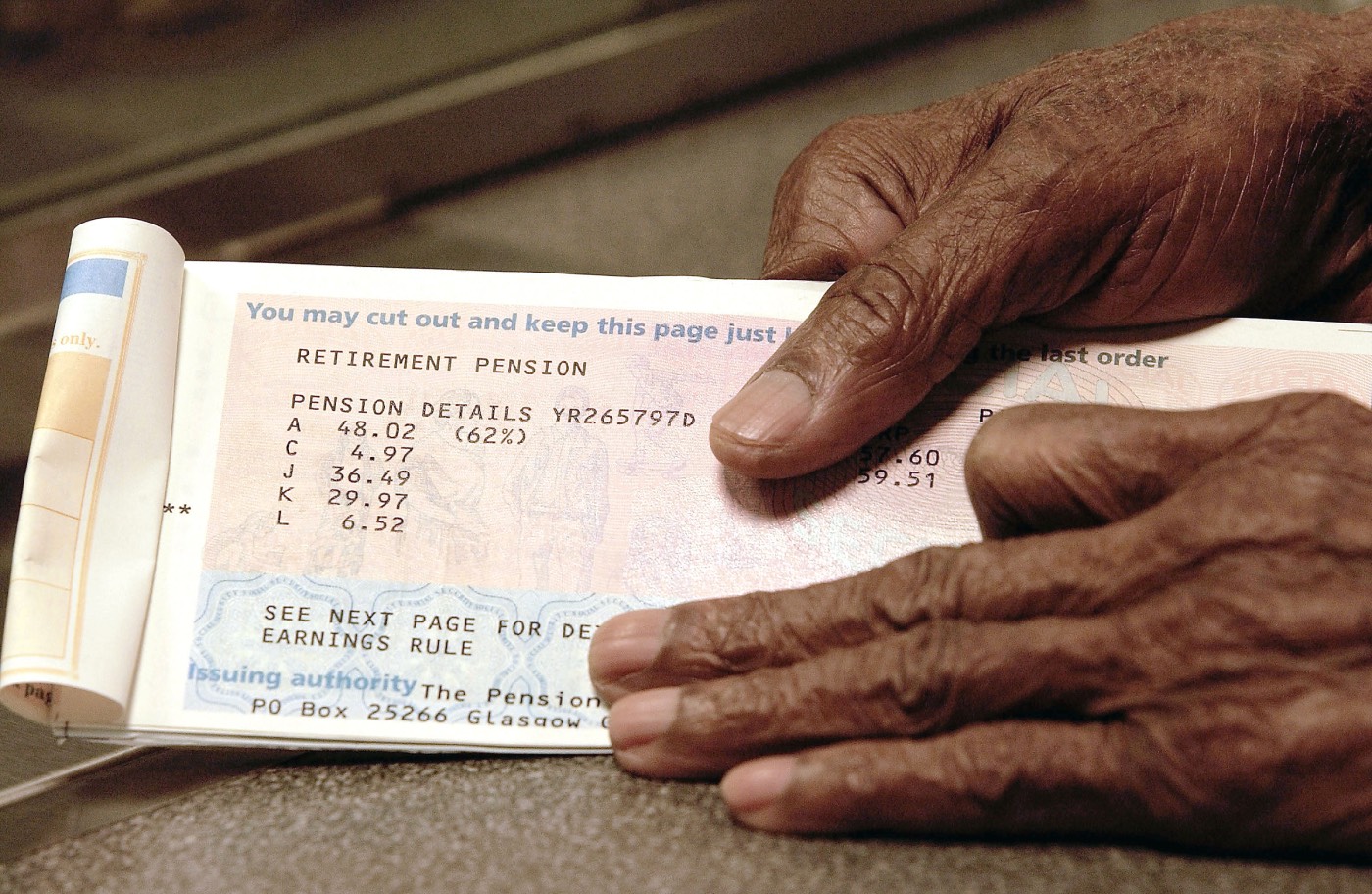Will pension triple-lock U-turn cost Boris Johnson?
‘Livid’ pensioners threaten revenge at the polling booth – but move may be favoured by the young

A free daily email with the biggest news stories of the day – and the best features from TheWeek.com
You are now subscribed
Your newsletter sign-up was successful
Boris Johnson has been warned to expect an electoral backlash from older voters after the government confirmed a one-year suspension of the “triple-lock” formula for annual state pension increases.
The triple-lock policy guarantees that the state pension rises each year by whichever is the highest out of average earnings, the inflation rate or 2.5%.
The BBC says that concern about a “big post-pandemic rise” in average earnings has driven the government to announce that the average earnings component of the formula would be disregarded in the 2022-23 financial year.
The Week
Escape your echo chamber. Get the facts behind the news, plus analysis from multiple perspectives.

Sign up for The Week's Free Newsletters
From our morning news briefing to a weekly Good News Newsletter, get the best of The Week delivered directly to your inbox.
From our morning news briefing to a weekly Good News Newsletter, get the best of The Week delivered directly to your inbox.
The Express described the announcement as a “huge blow” for OAPs. The i said pensioners are “livid” that “manifesto promises are being disposed of so lightly”.
In response, older voters could abandon the Conservatives, according to the campaign group Silver Voices. A spokesperson said that “as previously threatened, we will now campaign against the Conservatives at every available opportunity, as they have broken the trust of older people for the last time”.
He said the group would call on “all older people to deny the Conservatives their votes at all future elections, unless this policy is reversed”.
This is not the first time such a warning has been sounded. In 2017, when Theresa May announced a plan to ditch the triple-lock guarantee, Tory MPs said they feared their party risks a “bashing” from older voters, The Independent reported at the time. The National Pensioners Convention warned that the triple-lock question would be a “litmus test for the grey vote”.
A free daily email with the biggest news stories of the day – and the best features from TheWeek.com
Johnson’s attempt to break the triple lock may be equally “unwise”, argued Ros Altmann, a campaigner for the elderly and a former pensions minister, who is now a member of the House of Lords.
Writing for ThisIsMoney, Altmann reminded the prime minister that the policy resulted from the “political backlash after the furore about a very low state pension increase of 75p”. A new revolt could be on the cards, she added, after the “knee-jerk reaction to one year’s numbers”.
However, there are hopes that the announcement could help Johnson and Rishi Sunak head off complaints about generational injustice, which have only grown after the rise in national insurance, and Covid lockdowns.
The Intergenerational Foundation charity said “the young are the new poor” and argued that “the government could improve intergenerational unfairness overnight" by removing the earnings lock on the state pension because “national insurance hits younger, poorer workers hardest, while people over state pension age no longer pay it”.
However, writing for The Guardian, pensions expert Craig Barry argued that the government’s announcement is also “bad news for young people”.
He wrote that “the idea that scrapping the triple lock would be in the interests of intergenerational fairness rests on a false presumption that if we spend more money on one group of people, we must spend less on another”.
He added that “if the government really wants to alleviate intergenerational inequality then it should tax some of the wealth that older generations have accumulated”.
In the longer term, the legacy of the announcement could depend on how long it is kept in place for. The BBC’s personal finance correspondent, Kevin Peachey, wrote that “charities representing the elderly will hold the government to its commitment that this is just a temporary arrangement”.
Chas Newkey-Burden has been part of The Week Digital team for more than a decade and a journalist for 25 years, starting out on the irreverent football weekly 90 Minutes, before moving to lifestyle magazines Loaded and Attitude. He was a columnist for The Big Issue and landed a world exclusive with David Beckham that became the weekly magazine’s bestselling issue. He now writes regularly for The Guardian, The Telegraph, The Independent, Metro, FourFourTwo and the i new site. He is also the author of a number of non-fiction books.
-
 Local elections 2026: where are they and who is expected to win?
Local elections 2026: where are they and who is expected to win?The Explainer Labour is braced for heavy losses and U-turn on postponing some council elections hasn’t helped the party’s prospects
-
 6 of the world’s most accessible destinations
6 of the world’s most accessible destinationsThe Week Recommends Experience all of Berlin, Singapore and Sydney
-
 How the FCC’s ‘equal time’ rule works
How the FCC’s ‘equal time’ rule worksIn the Spotlight The law is at the heart of the Colbert-CBS conflict
-
 Would North Korean weapons tilt the war Russia’s way?
Would North Korean weapons tilt the war Russia’s way?Today's Big Question Putin wants to boost ‘depleted stocks’ but Pyongyang’s arms may be in poor condition
-
 What went wrong with the German economy?
What went wrong with the German economy?Today's Big Question ‘Deep-rooted’ and ‘knotty’ problems threaten return of ‘sick man’ label
-
 Why are so many local councils on the brink of bankruptcy?
Why are so many local councils on the brink of bankruptcy?Today's Big Question Inflation, underfunding and growing demand for services has put pressure on local authorities at the worst time
-
 UFO hearing: why is Washington suddenly embracing aliens?
UFO hearing: why is Washington suddenly embracing aliens?Today's Big Question Speculation of extraterrestrial life has moved from ‘conspiracy fringe’ to Congress
-
 Can the Ukraine-Russia Black Sea grain deal be rescued?
Can the Ukraine-Russia Black Sea grain deal be rescued?Today's Big Question The Kremlin’s termination of agreement has sparked fears among food-insecure countries
-
 Where is China’s missing foreign minister Qin Gang?
Where is China’s missing foreign minister Qin Gang?Today's Big Question Three-week absence coincides with rumours of an affair with Hong Kong TV presenter Fu Xiaotian
-
 What happened to the missing Titanic sub?
What happened to the missing Titanic sub?Today's Big Question Oxygen supplies running out after vessel lost contact during ‘daredevil’ trip
-
 Donald Trump indicted again: is latest threat of prison a game changer?
Donald Trump indicted again: is latest threat of prison a game changer?Today's Big Question The former president ‘really could be going to jail’ but Republicans ‘may not care’ say commentators